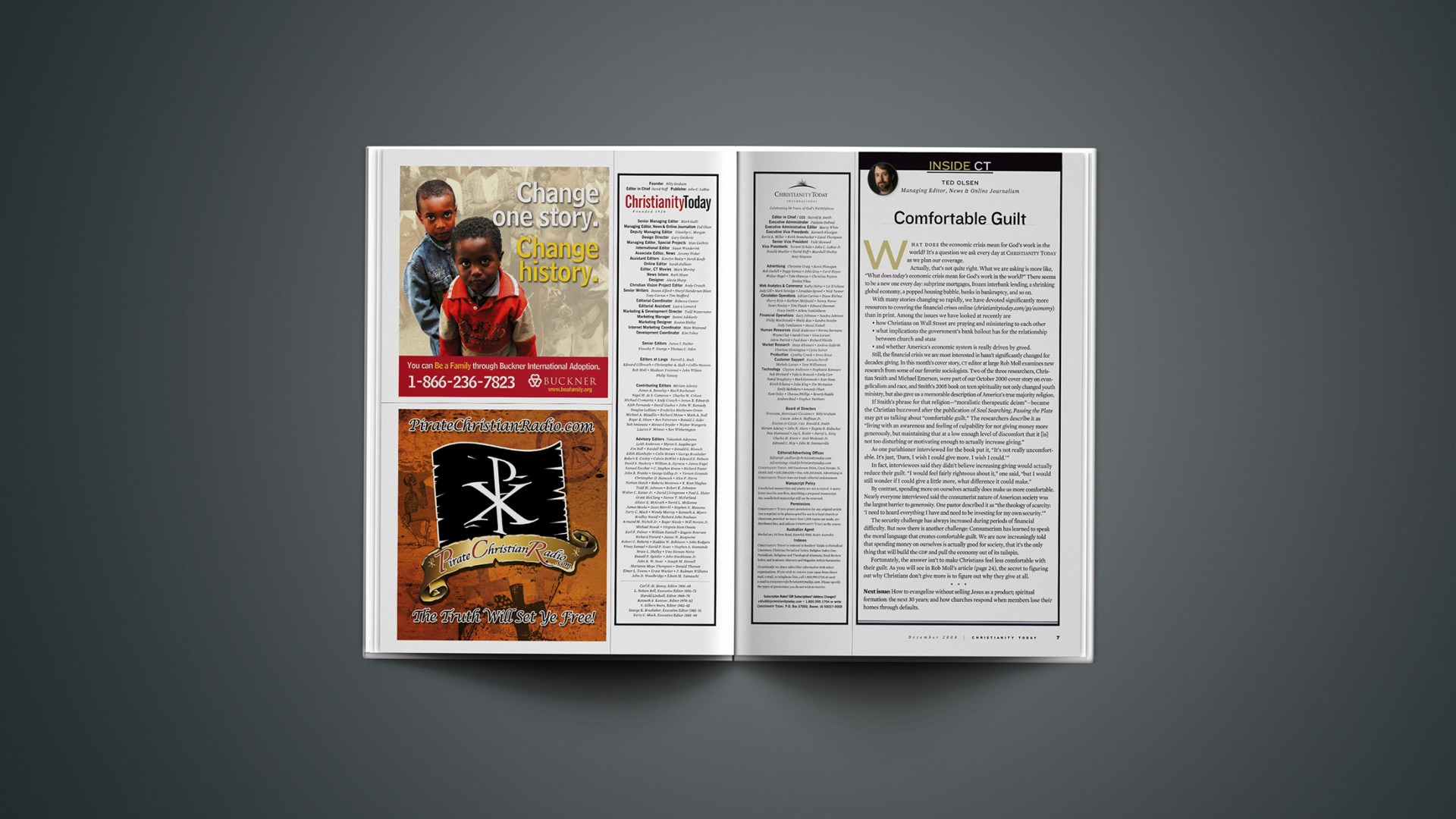What does the economic crisis mean for God's work in the world? It's a question we ask every day at Christianity Today as we plan our coverage.
Actually, that's not quite right. What we are asking is more like, "What does today's economic crisis mean for God's work in the world?" There seems to be a new one every day: subprime mortgages, frozen interbank lending, a shrinking global economy, a popped housing bubble, banks in bankruptcy, and so on.
With many stories changing so rapidly, we have devoted significantly more resources to covering the financial crises online (christianitytoday.com/go/economy) than in print. Among the issues we have looked at recently are
- how Christians on Wall Street are praying and ministering to each other
- what implications the government's bank bailout has for the relationship between church and state
- and whether America's economic system is really driven by greed.
Still, the financial crisis we are most interested in hasn't significantly changed for decades: giving. In this month's cover story, CT editor at large Rob Moll examines new research from some of our favorite sociologists. Two of the three researchers, Christian Smith and Michael Emerson, were part of our October 2000 cover story on evangelicalism and race, and Smith's 2005 book on teen spirituality not only changed youth ministry, but also gave us a memorable description of America's true majority religion.
If Smith's phrase for that religion—"moralistic therapeutic deism"—became the Christian buzzword after the publication of Soul Searching, Passing the Plate may get us talking about "comfortable guilt." The researchers describe it as "living with an awareness and feeling of culpability for not giving money more generously, but maintaining that at a low enough level of discomfort that it [is] not too disturbing or motivating enough to actually increase giving."
As one parishioner interviewed for the book put it, "It's not really uncomfortable. It's just, 'Darn, I wish I could give more. I wish I could.'"
In fact, interviewees said they didn't believe increasing giving would actually reduce their guilt. "I would feel fairly righteous about it," one said, "but I would still wonder if I could give a little more, what difference it could make."
By contrast, spending more on ourselves actually does make us more comfortable. Nearly everyone interviewed said the consumerist nature of American society was the largest barrier to generosity. One pastor described it as "the theology of scarcity: 'I need to hoard everything I have and need to be investing for my own security.'"
The security challenge has always increased during periods of financial difficulty. But now there is another challenge: Consumerism has learned to speak the moral language that creates comfortable guilt. We are now increasingly told that spending money on ourselves is actually good for society, that it's the only thing that will build the GDP and pull the economy out of its tailspin.
Fortunately, the answer isn't to make Christians feel less comfortable with their guilt. As you will see in Rob Moll's article, the secret to figuring out why Christians don't give more is to figure out why they give at all.
Ted Olsen is the managing editor for news & online journalism for Christianity Today.
Copyright © 2008 Christianity Today. Click for reprint information.
Related Elsewhere:
This article was published with our cover story: Scrooge Lives! Why we're not putting more in the offering plate. And what we can do about it.
Christianity Today has special sections on the economic crisis and money & business.










